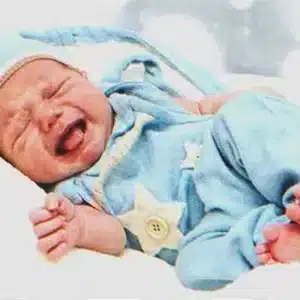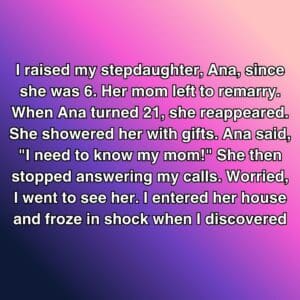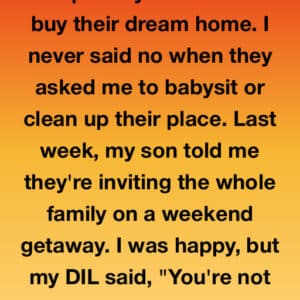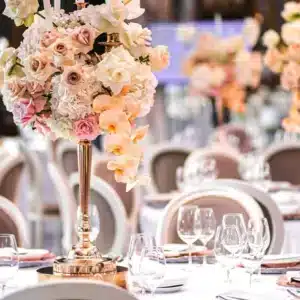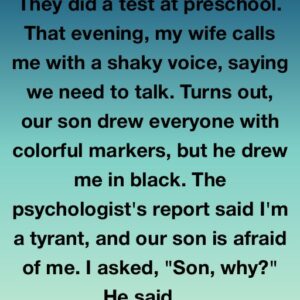I never thought I’d be the woman who writes one of these stories. But a few weeks ago, the ground under my marriage shifted so hard I swear I heard it crack.
I’m Caroline, 40. I’ve been married to David for almost ten years. He’s 52—quiet, steady, ocean-deep kind. He’s the person who notices you’re tired before you do, who sets a glass of water on your desk without making a speech about it. He’s the soft landing I didn’t know I needed.
There was only ever one locked room between us: his past. Twenty-plus years ago he was in a car accident—wrong state, wrong time, no ID, no witnesses who knew him. A trucker pulled him from a burning car. He spent a week unconscious, woke up with a scar and no name. This was before databases talked to each other. The hospital tried, but “John Doe” stuck. No one came. He rebuilt from nothing; chose “David,” after the man who saved him; learned engines because puzzles calmed the static in his head; and eventually found me.
Sometimes he’d stare at a sitcom family and say, almost to himself, “I wonder if someone once missed me.” I’d take his hand and say, “You’re here now. You’re loved.” It felt like enough. It was enough—until my mother’s 70th.
She wanted finger food and old music in our living room, nothing fancy. A college friend she hadn’t seen in decades came—Helen, all silver streaks and sharp eyes, the kind of woman whose silence feels like a decision, not an accident. We were about to cut the cake when David came in from the shop, hair wind-tossed, grease still living under his nails, wearing that smile he saves for me.
I walked him in, introduced him around. Helen’s wineglass slipped out of her hand and exploded on the hardwood. Everyone went still. She stared at David like she’d seen a ghost stand up.
“It’s you,” she breathed. “Oh my God. It’s you.”
David’s smile fell. “I’m sorry… do I know you?”
“You disappeared twenty years ago,” she said, voice shaking. “My daughter Michelle married you. You were Thomas. You had two kids—Ava and Brian. You were driving to Georgia and you never came back. We thought you died. We searched. Your wife never stopped.”
The room muffled itself. I could hear my pulse climb into my throat. David turned to me, ashen. “She knows me,” he whispered. “She knows who I was.”
Helen sent photos the next morning. There he was—no scar, hair cropped shorter—standing at a grill, arms around two gap-toothed kids, a woman with her chin on his shoulder. The face was a cousin to my husband’s. The eyes were identical. She wrote: I recognized his voice, too. He always sounded like he was smoothing storms.
We drove eight hours that weekend to meet them. I don’t remember much about the highway; just the way David’s fingers opened and closed on his jeans, like he was practicing how to hold something fragile.
The house was modest, paint peeling on the railing. Two adults waited on the porch. The girl—woman now—Ava, 28, didn’t make it down the steps before she started sobbing. She went straight into David’s arms and held on like she could reverse time with tensile strength. Brian, 30, stood back, jaw set, then folded into his father and cried the way men cry when no one taught them how.
I stayed by the car, hands twisted in my coat pockets, swallowing hard. The reunion was a miracle and a knife, both pressing in. I love my husband. And I could see, with painful clarity, the shape of the life that kept going without him.
Inside, over casserole and too-sweet tea, they showed us birthdays and school plays and the front steps at Halloween, his empty spot carved into every frame. Michelle—his first wife—had died three years earlier. Her last journal entry was a single paragraph: I still believe he’s out there. Maybe not the same, but alive.
No one blamed him. They asked questions. They listened. They told stories. They were childlike in their joy and old in their grief, and I watched David watch his children, and I understood that some part of him had just found its name again.
Back home that night, we sat in the dark like the furniture might start talking if we gave it time.
“If you need to go back to them,” I said finally, tasting the words as they left. “I’ll understand.”
He turned so fast the couch creaked. He took my hands and pressed them to his chest. “Caroline,” he said, low and certain, “I lost a past I can’t remake. I built a life with you. You are my wife. You are my home. I’m not leaving. I will be in their lives—I want to be. I will learn my children. But I found you for a reason.”
I cried into his shirt until the fabric chilled. I believed him. I also understood that loving him now meant making room for a before.
The weeks since have been a soft reconstruction. David calls Ava to ask about the vintage mug in her cabinet because he used to collect that brand and didn’t know it; she sends him a box of his own old things she’d saved in a closet, a baseball cap with sweat lines still haunting the brim. He meets Brian for coffee and learns his son builds furniture—oak tables with dovetail joints so clean they look machine-made. They talk shop. They talk scars. They talk about being men who had to teach themselves their fathers’ jobs.
They come to our house for dinner. My mother sets too many forks. Helen tells me she used to be a strict mother-in-law and now practices shutting up. We laugh hard at small things because the big things are too big to hold for long stretches. Sometimes I catch David looking at family photos on our wall, and then at theirs propped on our mantel, and I see his face move through bewilderment into something like peace.
There are complicated parts. Of course there are. Grief doesn’t evaporate because a miracle arrives. There are days David is quiet and far away in a place that smells like cut grass and toddler shampoo; there are nights he is all present, all warmth, snoring into my hair while I lie awake and negotiate with a jealousy that isn’t jealousy so much as the ache of sharing sacred ground. I tell him when it’s hard. He listens the way he always has, which is to say fully.
We’ve met the truck driver who pulled him from the wreck—the original David, older now, still carrying that night in the lines around his eyes. We shook his hand and stood there in a gas station parking lot not sure how to say thank you for a decade, a marriage, a second beginning. He waved us off, embarrassed. “Saw a car on fire,” he said. “You do what you do.”
Some evenings my husband will pause in the doorway and just look at me, calm as ever, like he’s memorizing the exact way I stir sauce or tuck my hair behind my ear. And I think: his life got torn, stitched, torn again. Different threads. Same heart. Somehow the seams hold.
People love a neat ending. There isn’t one. There’s only this: a man learning the contours of two lives; two adult children relearning how to say Dad; a woman letting her marriage widen without breaking; a first wife’s faith curling like a ribbon through all of it; a mother at 70 blowing out candles while the past and present clapped in the same room.
Every once in a while, when the house is loud—Ava laughing at something on my phone, Brian explaining joinery to my mother, my husband telling a story that ends in a groan and a grin—I catch that steady gaze from across the room. The one that found me long before either of us knew how much work it would take to hold what was coming. He tips his head the tiniest bit. I tip mine back.
Even when the universe rips pages out of your book and shoves random chapters in their place, love has a way of reading it aloud like it was always written that way. Somehow, against every odd I can count, we are here. And somehow, we are home.
